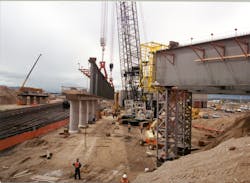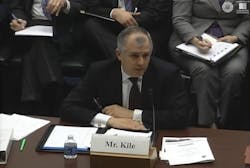CBO sees slight benefits to public-private partnerships in highways
A handful of studies on public-private partnerships, or P3s, in highway construction suggest that such arrangements “have built highways slightly less expensively and slightly more quickly, compared with the traditional public-sector approach,” a Congressional Budget Office researcher told a special House Transportation & Infrastructure Committee panel on March 5. Joseph Kile, CBO’s assistant director for microeconomic studies, cautioned, however, that data on P3s in highway projects are scarce, so it’s difficult to conclude definitively that other P3 projects would see similar results.
The costs of financing a highway project privately “is roughly equal” to the cost of financing it publicly once you factor in costs associated with the risk of project losses – which taxpayers ultimately bear – and the financial transfers made by the federal government to states and localities, Kile told the panel. Any remaining difference in costs results from the effects of incentives and conditions established in the contracts that govern P3s, he said.
Kile also emphasized that private financing increases the availability of highway construction funds only if the state or local government restricts its spending through legal constraints or budgetary limits.
“The reason is that revenues from the users of roads and from taxpayers are the ultimate source of money for highways, regardless of the financing mechanism chosen.”
The House T&I Committee established the special panel in January to explore the use of and opportunities for P3s across all modes of transportation, economic development, public buildings, water, and maritime infrastructure and equipment. The March 5 hearing, which was the panel’s first, focused on highway and transit projects.
Although the panel is not participating directly in the highway reauthorization process, one of the issues at the hearing was the experience with the Transportation Infrastructure Finance and Innovation Act (TIFIA) program, which provides federal loans, loan guarantees or lines of credit to eligible surface transportation projects, including P3s. The last highway act known as MAP-21 significantly expanded the TIFIA program, which was created in the late 1990s.
Other witnesses at the hearing were James Bass, interim executive director and chief financial officer of the Texas Dept. of Transportation; Phillip Washington, general manager of Denver’s Regional Transportation District; and Richard Fierce, senior vice president for Fluor, testifying on behalf of Associated General Contractors of America.

